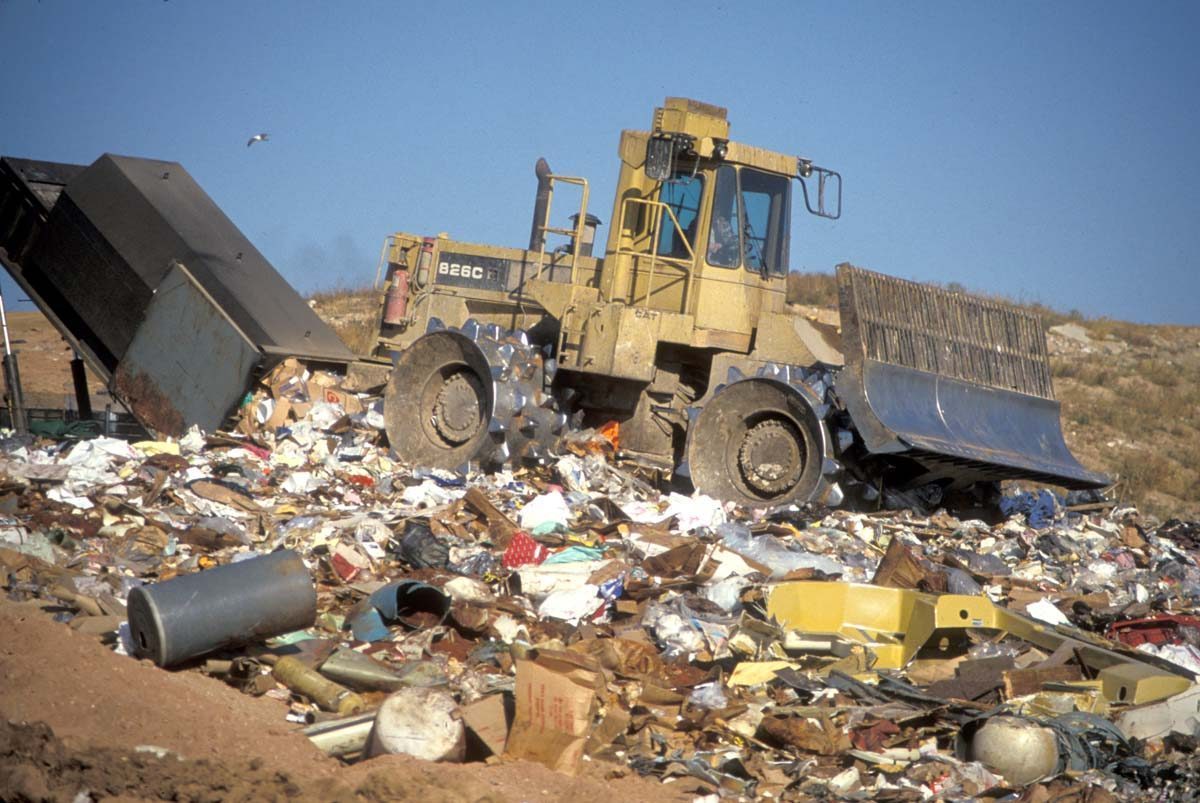
Unable to cope with the rising amount of rubbish produced by Qatar’s rapidly expanding population, the country has been dumping some 400 tons of domestic waste into landfills daily.
This has prompted officials to consider opening a new waste management facility.
The last one was inaugurated in 2011, but the state-of-the-art domestic solid waste management center near Mesaieed is now operating at full capacity, according to a senior official from the company that designed and built, and now manages, the waste center.
Speaking to the Gulf Times during a tour of the facility this week, Stefan Kipp, regional director (MENA) of Singaporean company Keppel Seghers, said:
“Since the facility has reached its maximum capacity, most of the 400 tons of surplus waste goes to the landfill.”
Waste problem
Qatar produces around 7,000 tons of waste each day. Some 30 percent of that (2,100 tons) is generated by households, and the remainder is comprised of construction and demolition materials.
According to BioEnergy Consult, there are three landfills in Qatar, and all are running out of space – one is in Umm Al-Afai for bulky and domestic waste; one is in Rawda Rashed for construction and demolition waste; and one is in Al-Krana for sewage waste.
Because the amount of waste being produced by residents is increasing annually, Keppel Seghers has submitted proposals to the government for a QR2 billion expansion of the current facility.
If accepted, the plant would be able to process the up to 5,000 tons of domestic waste that is forecast to be produced each day by 2024, the center’s manager Oon Ee Heng told Gulf Times.
Qatar’s waste generation is among one of the highest figures per capita in the world, at around 1.6 to 1.8kg per day.

The country has faced international pressure to improve its green credentials, which will be in the spotlight in the coming days as 125 world leaders – including the Emir – meet for the UN climate summit in New York.
Qatar’s 2011-2016 National Development Strategy has listed a number of targets to reduce the amount of waste produced, aiming to increase recycling from 8 percent to up to 25 percent, and to reduce landfill waste from 92 percent to 64 percent.
At a domestic level, there have been some efforts to introduce recycling facilities at a number of central locations such as Katara and in Education City.
However, in a recent post on sustainability blog site EcoMena, writer Andrew Clark calls for more public awareness and community engagement in order to make these grass roots efforts more successful:
“There needs to be a public acknowledgement that all individuals residing in Qatar have a vested interest in pushing for greater environmental protection enforcement and accountability.
In a region that is already faced with a lack of potable water and arable land, allowing the existing course to be maintained is not only risky, it is flat-out dangerous to the nation’s survival.”
A pilot program to introduce recycling pods in major malls and popular hangouts like Souq Waqif was on the cards after Qatar hosted the UN Climate Change Conference, COP18, in 2012. However, it faltered due to bureaucracy.
Center facilities
Qatar’s waste unit does have an advanced facility to sort materials for recycling, although it doesn’t actually recycle any waste directly.
According to Kepppel Seghers, a high-tech “dano-drum” feeds into magnetic separators, eddy current separators, and infra-red and wind sifters which can help to recover 90 percent of metals, and 50 percent of plastics for recycling.
These materials are stored at the 300 hectare facility until the government decides where they should be exported.
“Obviously we need to find at a certain point in time we will need a destination for all these materials,” Kipp told Gulf Times.
Organic waste is sent to an anaerobic digestion and composting plant to produce soil enhancers for use in agriculture and landscaping as well as energy.
Meanwhile, much of the rest of the waste handled at the facility is burned. Three units can incinerate up to a combined total of 1,500 tons of waste each day.
This facility can also convert the steam created from burning the waste into clean energy.
It produces up to 30MW of power each day, 25MW of which is sent to the national grid run by Qatar General Electricity and Water Corporation (Kahramaa).
Used tires

The waste center also has a facility to store used car tires.
However, with some 1 million tires currently onsite, that facility has also reached capacity and is no longer receiving any more.
The tires stored at the facility are just a small percentage of the huge number of old tires Qatar is trying to cope with.
Shayan Barmand, head of operations and business development at Raetex, a company that deals with end-of-life tires, estimates Qatar has around 11 million used tires which should be recycled for use in the construction industry.
However a lack of demand locally means that the tires need to be exported, which is expensive and inefficient.
Thoughts?







